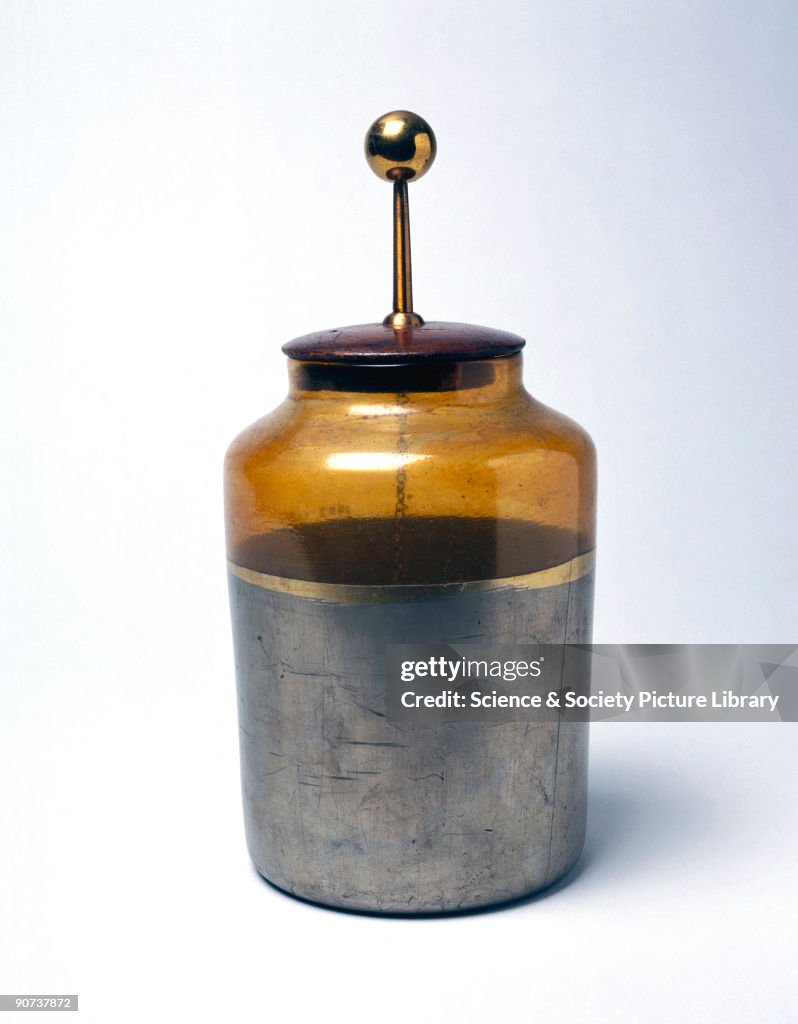Leyden jar, 1746.
NETHERLANDS - APRIL 26: The Leyden jar was an early capacitor, or a device for storing an electric charge. It was devised in 1746 by Pieter van Musschenbroek, at Leyden in the Netherlands. It is simply a glass jar with metal foil coatings inside and out. The inner coating can be connected to a source electric charge by a chain or other conductor. When one end of a discharger is placed in contact with the outer foil, and the other end is brought near the ball on top of the charged jar, a spark passes between the ball and the discharger. The Leyden jar is interesting because it produced much more powerful electric shocks, or sparks, than anything before it. (Photo by SSPL/Getty Images)

PURCHASE A LICENCE
How can I use this image?
£375.00
GBP
Please note: images depicting historical events may contain themes, or have descriptions, that do not reflect current understanding. They are provided in a historical context. Learn more.
DETAILS
Restrictions:
Contact your local office for all commercial or promotional uses.
Credit:
Editorial #:
90737872
Collection:
SSPL
Date created:
26 April, 1998
Upload date:
Licence type:
Release info:
Not released. More information
Source:
SSPL
Object name:
10309777
Max file size:
2730 x 3504 px (23.11 x 29.67 cm) - 300 dpi - 2 MB